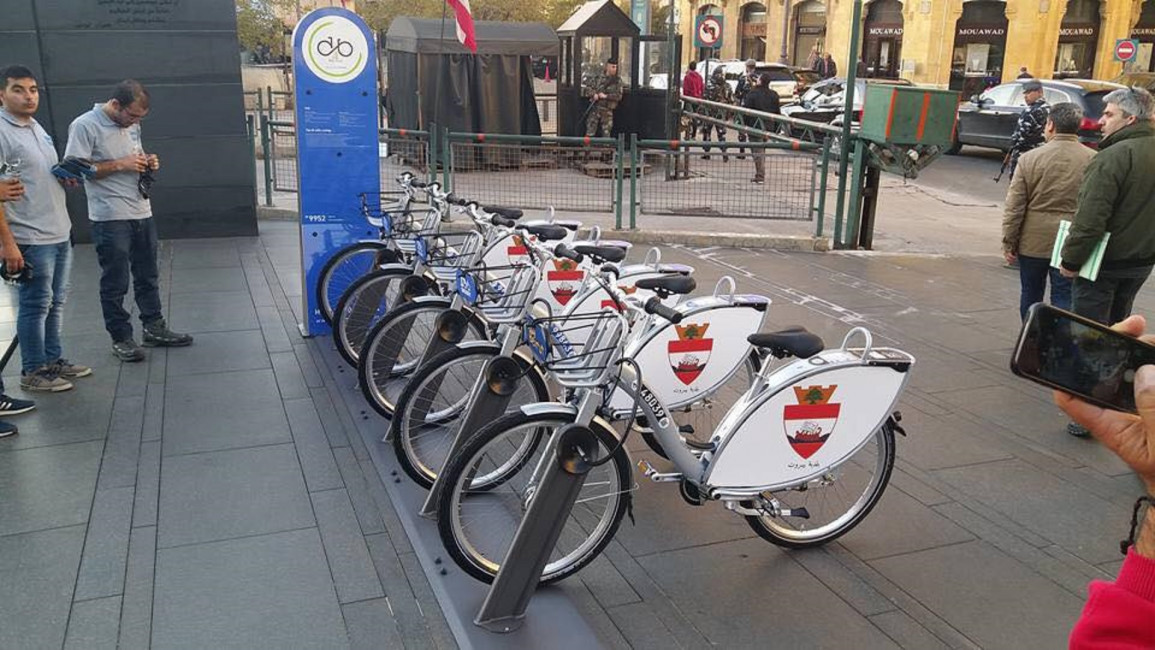
Vicious cycle: Beirut bike-sharing scheme draws mixed reactions
The scheme, which launched with a solitary station in the glitzy downtown area, will gradually expand to cover the entire cities and may be replicated in other major urban centres across Lebanon, according to those involved in the project.
However, with the country's dismal infrastructure, poor road safety record and lack of reliable public transport, many have ridiculed the move, while some expressed concern over cyclist safety amid a lack of dedicated cycling lanes in the city.
The bike-sharing system, the first of its kind in Lebanon, will officially launch on Friday. It is the fruit of efforts by private parties led by the Bike 4 All initiative, which will finance it completely, but has received some support from city authorities.
The prototype station will have five bicycles. By April, it is hoped there will be 25 stations in Beirut, mostly serving the university campuses scattered across the hilly city, with 12 bikes each.
 |
By 2020, the project planners aim to have 500 bikes in operation, with a cashless smart payment system in place. |  |
By 2020, the project planners aim to have 500 bikes in operation, with a cashless payment system in place.
If successful, the project could be expanded to cover other major cities, such as Tripoli in the north, where a limited cycling lane was launched recently but was unsucessful, and Sidon and Byblos.
But despite cycling advocates' best intentions, not all Lebanese are optimistic about the success of the project.
For one thing, the government's outsourcing of basic services, from utilities to transport, to private entities and NGOs, including the new bike-sharing system, risks it being little more than a PR stunt.
For another, a bike-sharing scheme is seen as a sign of misguided priorities, in the absence of a mass transit and reliable traffic management system in a sprawling and traffic-ridden metropolis like Beirut.
Elie Fares, a Lebanese blogger, best captured this sentiment in a post on Wednesday.
Installing a bike sharing station in Beirut, he wrote, "is nothing more than decoration at this point to the overgrown sidewalk in which it’s placed."
Fares cited the lack of bike lanes, proper pavements, proper traffic law enforcement, and the lack of a professional traffic police force for his non-enthusiasm.
However, the proponents of the project insist that bike lanes will be established in the city, full with park-and-go facilities on the outskirts of the city within the coming few years, according to local English newspaper The Daily Star.
With the history of such well-intentioned projects in Lebanon, only time will tell whether this time things will be any different.



